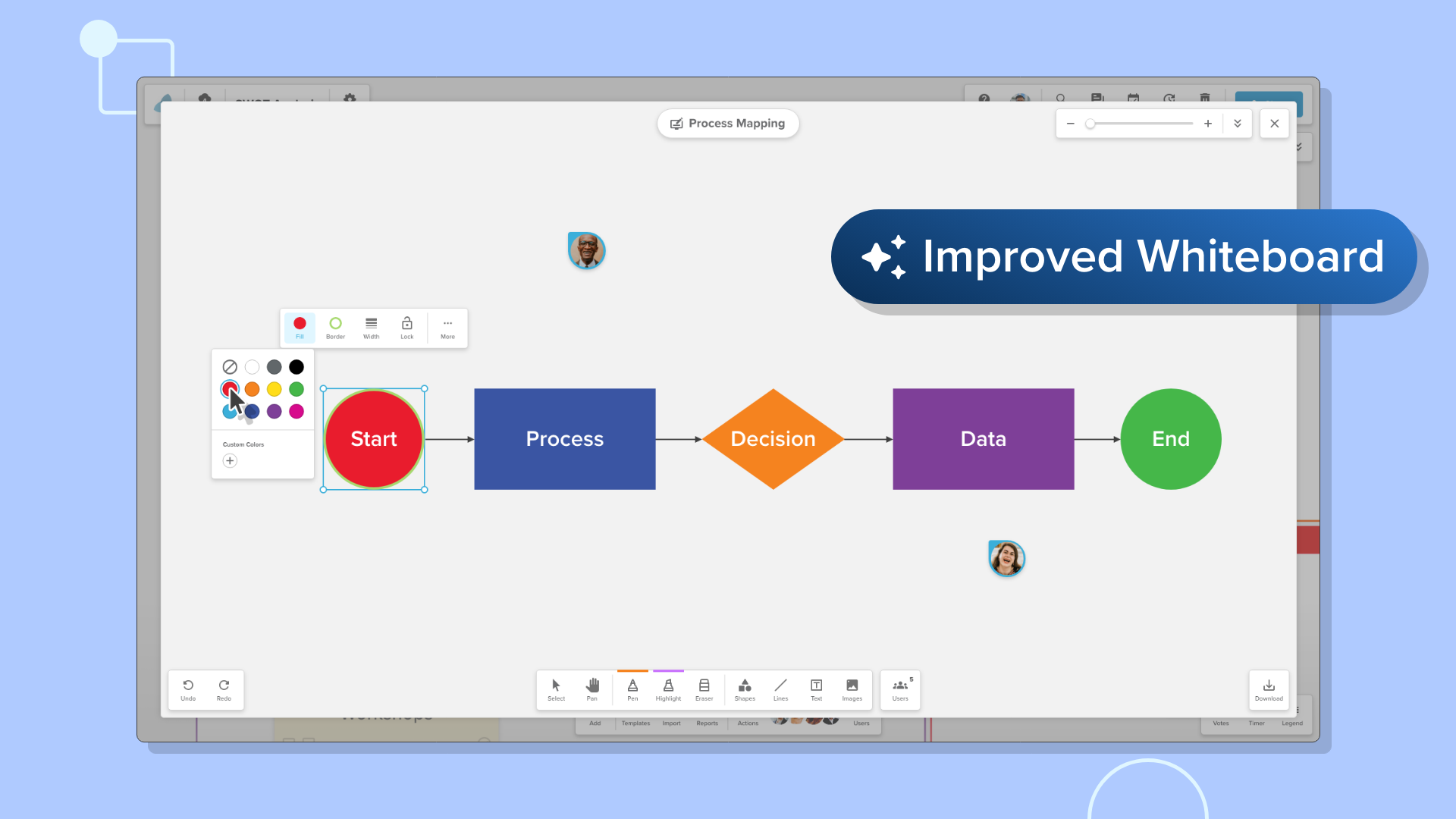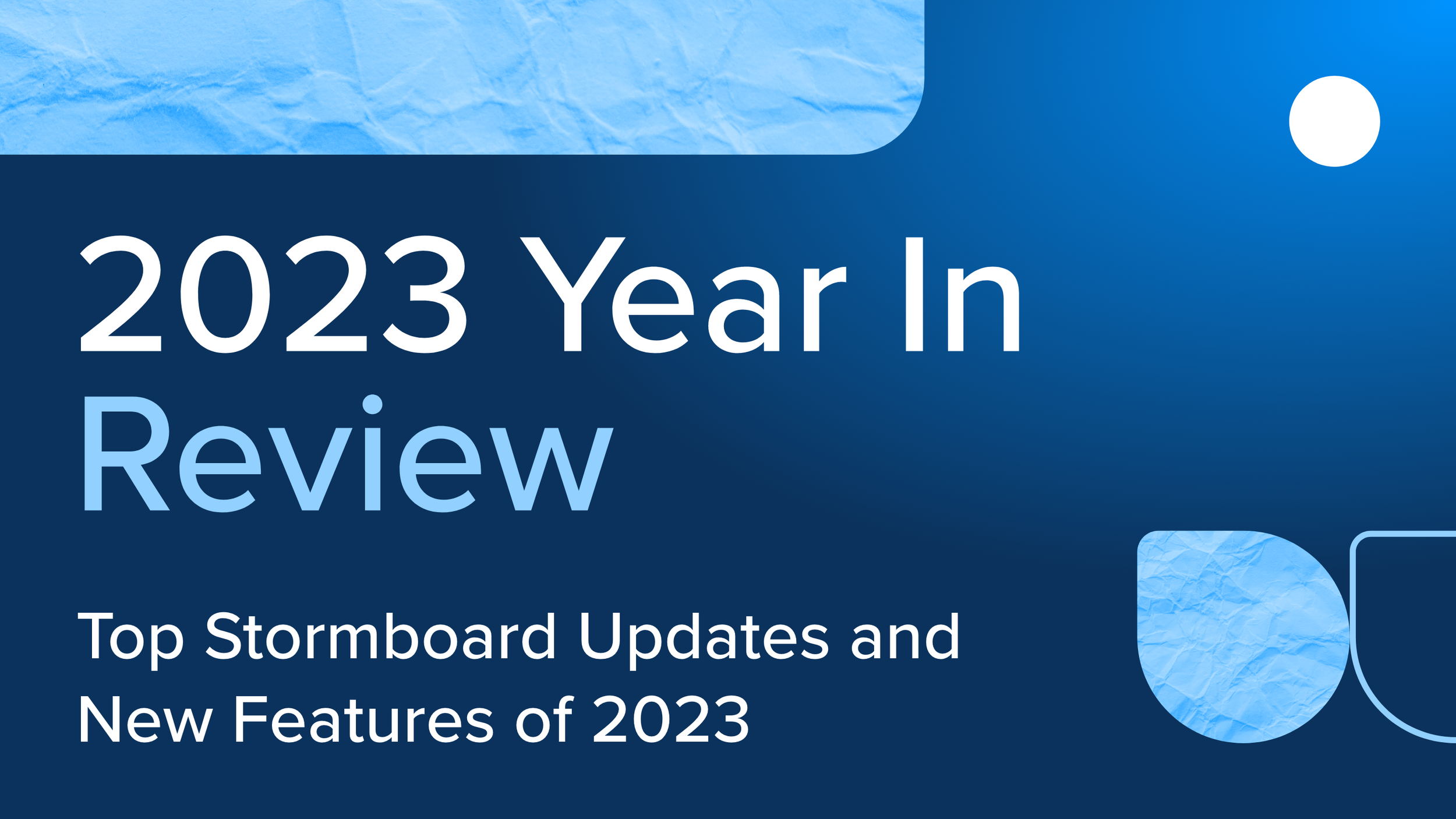7 Ways Meeting Facilitators Can Help Remote Teams
Businesses around the globe have trusted professional facilitators or consultants to set up, organize, and run their company meetings for decades.
These contractors streamline processes, arrange meetings, optimize company time, and (more recently) run remote meetings. Businesses are quick to see a return on investment based on the enhancement of productivity and a more fluent, team-based work culture.
With many companies now forced to work remotely, meeting facilitators have had to shift gears and change their processes to reflect the needs of the current marketplace.
Now (more than ever), teams need to connect and work in a cohesive structure, and while meeting software has stepped in to simplify protocols and manage workflows, there is still a basic need for a facilitator to lead the meeting or process, so make sure all goals are achieved.
In this article, we will explore several ways that meeting facilitators can help remote teams, showing their value as contractors within the remote work marketplace.
They Schedule Meeting Times
When organizing a meeting for an entire company, it can be challenging to find a meeting time that works for everyone. Organizing a meeting time is especially difficult when employees are working remotely — people are free to work more flexibly, and coworkers may not be able to sync up daily tasks or projects as they are dealing with distractions at home like children, chores, other family members, etc.
It is the meeting facilitator’s role to contact every member of the team and find out when works best for them for a meeting, then schedule that meeting at a time the works best for the whole team.
They Enforce Meeting Etiquette
With outspoken employees that are used to dominating the conversation and many distractions at home, meeting etiquette is imperative to maintaining productivity when working remotely.
Having a facilitator run your meeting means that there is someone there to set etiquette rules before the meeting — turn off music or tv, close windows, no eating during your call, everyone has three minutes to speak, etc.
This sets the expectation for the meeting, holds staff accountable, and minimizes distractions, making the overall flow of the meeting more efficient and positive.
They Set Meeting Goals
Meeting facilitators make sure that what you want to achieve in your meeting happens, and this work begins before the meeting even starts.
Whether you’re having a meeting to discuss a new product release or to develop a digital marketing strategy plan, meeting facilitators will assist by outlining exactly what needs to be completed in your call to make sure your goals are achieved, and you won’t have to meet again on the same topic.
They Plan the Overall Flow of The Meeting
In any staff meeting, at any company, there is going to be a mix of different personalities, opinions, and ideas. With one disagreement or off-topic comment, the meeting can quickly go sideways, and the meeting goals may not be achieved.
This is where the meeting facilitator comes in. One of the most important roles of the facilitator is to plan, and then control the overall flow of the meeting.
They will deliver a schedule or agenda with talking points before the meeting to ensure that everyone knows what is expected, and then stick to that plan throughout the meeting. A facilitator might even set time limits for each topic, so the meeting doesn’t extend longer than it’s supposed to.
Planning the flow of the meeting may sound like a cakewalk — but it is anything but. To be a successful meeting facilitator, they have to set a schedule, but still be able to recognize when valuable conversations outside of the schedule come up, and pivot when necessary. The meeting facilitator will make judgment calls and redirect the group when needed.
Often, meeting facilitators will encourage open, unrelated conversation at the beginning of the session. Especially with remote work, everyone is seeing each other less and are unable to have their coffee break chats. By encouraging a few moments of open conversation, the meeting facilitator is building morale and avoiding interruptions during the scheduled meeting.
They Set Up Remote Tools
With businesses moving to remote work, proper tools and resources have to be implemented to keep everyone on track. You’ll likely need an online calendar, video conferencing software, a digital workspace, and potentially presentation software.
Depending on the unique needs of your company and the complexity of remote work, the meeting facilitator will implement tools that will work best for your team’s specific needs, help ramp-up productivity and simplify tasks for the entire organization.
They Encourage Interaction
In any workplace, there is going to be a variety of personality types, and some may be less likely to speak up in meetings.
The goal of the meeting facilitator is to make sure that everyone gets heard, no matter what their communication style, and to choose a tool that facilitates this.
This will also include having prompts at the ready to make sure there are no awkward silences, and that productive conversation and discussion can occur to propel the meeting forward.
The Send Meeting Notes and Delegate Tasks
One of the most important jobs of a meeting facilitator is to provide meeting notes to the attendees for review. They will have either kept a record of the meeting themselves or used a digital tool to compile all of the information shared and collected.
If projects were discussed during the meeting, there might also be a list of tasks that need to be delegated. The meeting facilitator will assign a list of deliverables with due dates and a task list to those who have been assigned work.
Conclusion
Effective meetings are essential to the success of any company. Make the most out of your meeting time by hiring an expert that can help navigate the world of remote work. Not only will this improve overall morale, but it will keep your team connected during this time of uncertainty.
The processes and success of your business and productivity shouldn’t falter whether you’re in your office or not — a meeting facilitator can help you stay connected and get work done.
About the Author
Celina Dawdy is a freelance writer in Edmonton, Alberta. When she isn’t writing, she’s volunteering and spending time with her three dogs.










